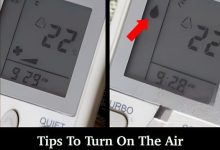Hurricanes, traffic accidents, storms, and decaying infrastructure are some of the most common reasons for a power outage. Whether you live in the city or the country, a power outage is destined to strike your home at least once during your lifetime.
Even though hurricanes and other severe weather patterns cause most long-term power outages, no home is inherently safe from a power outage.
Depending on where you live, the severity of the power outage can either be a nuisance or life-threatening. In either case, make sure you are prepared for a power outage in advance. Being prepared includes having food, water, and more prepared for these troubling times.
Here are some things you need to prepare for a power outage and what you should not do during one:
What Should You Do Before a Power Outage?
Power outages can come when you least expect it. Make sure that you are ready for the worst by having different supplies at the ready year around.
1. Gather Enough Water for Every Person in the Household

Most experts recommend that you have one gallon of water per person in your household every day you expect to not have power. For most short term power outages, this will be more than enough water.
If you live in an area that is prone to having more extreme power outages, such as an area exposed to hurricanes, you will want to make sure you have several gallons of water with you in your home.
Remember, you use water for more than just drinking. Every time you brush your teeth, shower, or rinse your dishes, you use water. That is why you need so much water in your stockpile.
Though municipalities often supply water during power outages, that outage may impact the purity of the water. For this reason, you may also want to invest in a water purifier within your home. A good purifier is a bit expensive, but they’re great for power outages, hiking, and a variety of other uses.
You may also want to consider having bagged ice and mini coolers on hand if you like drinking cold water.
2. Stock Up on Nonperishable Food

Even if you have a refrigerator full of food, that food is really only good for about 4 hours after the power goes out. The food in your freezer, on the other hand, will last about two days. More so, you probably won’t be able to use your stove or microwave during a power outage.
For this reason, you need to have foods that don’t require either being kept cold or a stove for preparation. The best way to go about this sort of food is by selecting canned or freeze-dried meals. These types of meals are nonperishable, meaning that they can last a long time without power.
Canned beans, corn, green beans, and Campbell soup are examples of nonperishable food that doesn’t need a refrigerator or stove to eat.
These meals may not be terribly appetizing, but appetizing doesn’t matter much in this scenario. Especially if you live in an area where power outages are uncommon, you shouldn’t have to live off of these foods for many years or a long time.
One thing you will need in addition to these food items is a manual can opener. Almost all nonperishable foods are in a can. Make sure you can actually open them by having a manual can opener in your kitchen. This utensil will come in handy even when the power is on.
3. Plan for Your Pet

If you have a pet, make sure that you plan for them as well. They will need water and food just like you. Add more water accordingly, and make sure you have extra bags or containers of nonperishable pet food, like dry dog food or dry cat food.
If you have a small animal like a Guinea pig or rabbit, you may want to opt for pellets since fresh vegetables will not be available. Even if you don’t normally feed your small animal pellets, the pellets can give them the vitamins and minerals they normally get from veggies.
Also, make sure that they have their tags and any other safety feature like a collar on. Since electric fences and electric gates will not work during a power outage, it is much easier for your pet to escape. Make sure you have everything you need to help them stay safe within your home.
4. Consider Getting Other Power Sources

Depending on where you live, a power outage can be extremely severe and problematic. For example, if you live somewhere with severe winter weather, a power outage will be much more dangerous for you than for someone who lives in a warm environment.
For those in more extreme areas, you might want to consider getting an alternative power source. This can include a backup generator and extra gasoline. These sources will come in handy and potentially could save your life, depending on your circumstance.
Even if you don’t live in an area that is potentially dangerous without power, keeping an extra can of gasoline in your garage is always a good idea.
5. Collect Flashlights, Lights, and Batteries

Whether or not you decide to get a backup generator, make sure you have multiple flashlights, battery operated lights, and extra batteries in your home. Back in the day, many people used candles during the night, but that is a relatively unnecessary and potentially unsafe option today, especially if you have children or pets.
Instead of selecting these potentially dangerous light items, just get battery operated light. They will last a long time, and they aren’t a potential safety hazard. Just make sure you have plenty of batteries on hand, and you should be good for a long time.
6. Find Communication Tools

It can be incredibly stressful during a power outage if you don’t know how to communicate with anyone. Make sure that you have communication tools like a cell phone or a radio in your home. A radio will also be helpful because you can get quick information about the reason for the power outage and when it is expected to come back on.
If you expect to use your cell phone as your means of communication, make sure that you have a wireless charger that is charged up. This tool will require you to charge it up before the power outage, and it will eventually die if you use it too much. So, make sure you keep a charged option in your home and use it sparingly during an outage.
7. Make Medical Plans

If you or someone in your home has a medical condition that requires electricity for treatment, make sure that you have plans in place for if the power goes out. Talk to your doctor about the best way to continue with the treatment, even in the case of a power outage. This could save your life.
The same goes if you require frequent medication. Even if the medication doesn’t require electricity, it can be difficult to refill your medicine if there is a widespread power outage. Once again, talk to your doctor for recommendations.
8. Plan Activities

Whether the power outage is short or long, it can get a little boring, especially if it is at night or you have children. Make sure you have different activities that don’t require electricity to keep everyone calm, happy, and entertained during the outage.
Board games, card games, and arts and crafts may be great choices for power outage activities. They are great ways to bring your family together, but they also don’t require electricity. If the power outage lasts for a long time, you can take turns with your family members selecting what game to play next.
What Should You NOT Do During a Power Outage?
OK, so you have planned for a power outage, and it has finally happened. What should you not do?
1. Panic
First things first. Do not panic. Even though it can be stressful during a power outage, don’t lose your cool or encourage other people to lose their cool. Instead, focus on the fact that you have prepared beforehand and just relax. People have lived for centuries without power, and you can do it too for a short while.
2. Open the Fridge and Freezer Doors
Food in your refrigerator will only last about four hours, and food in your freezer will only last about two days after a power outage has begun. This time estimate is assuming that you don’t open the fridge and freezer.
For this reason, you should not open your fridge or freezer doors unless you have to. Every time you open it, cold air will leave the container, speeding up the process of food spoiling. Try to keep the fridge and freezer doors shut for as long as possible.
3. Overuse the Hot Water
During a power outage, you can use the hot water that was already heated before the outage, but that water is limited. Do not overuse the hot water, or else you could run out of it way too quickly. When you use it, use it sparingly so that you don’t have to shower in cold water.
4. Overuse Your Phone’s Battery
Even though it can be boring sitting with the power out, don’t overuse your phone. That phone can be your lifeline later on, but you won’t be able to charge it during a power outage. Don’t overuse the battery, especially at the beginning of the power outage.
You can have a portable charger or car charger at your home so that way your phone doesn’t die. Still, these charging options are more limited, so use them sparingly as well.







